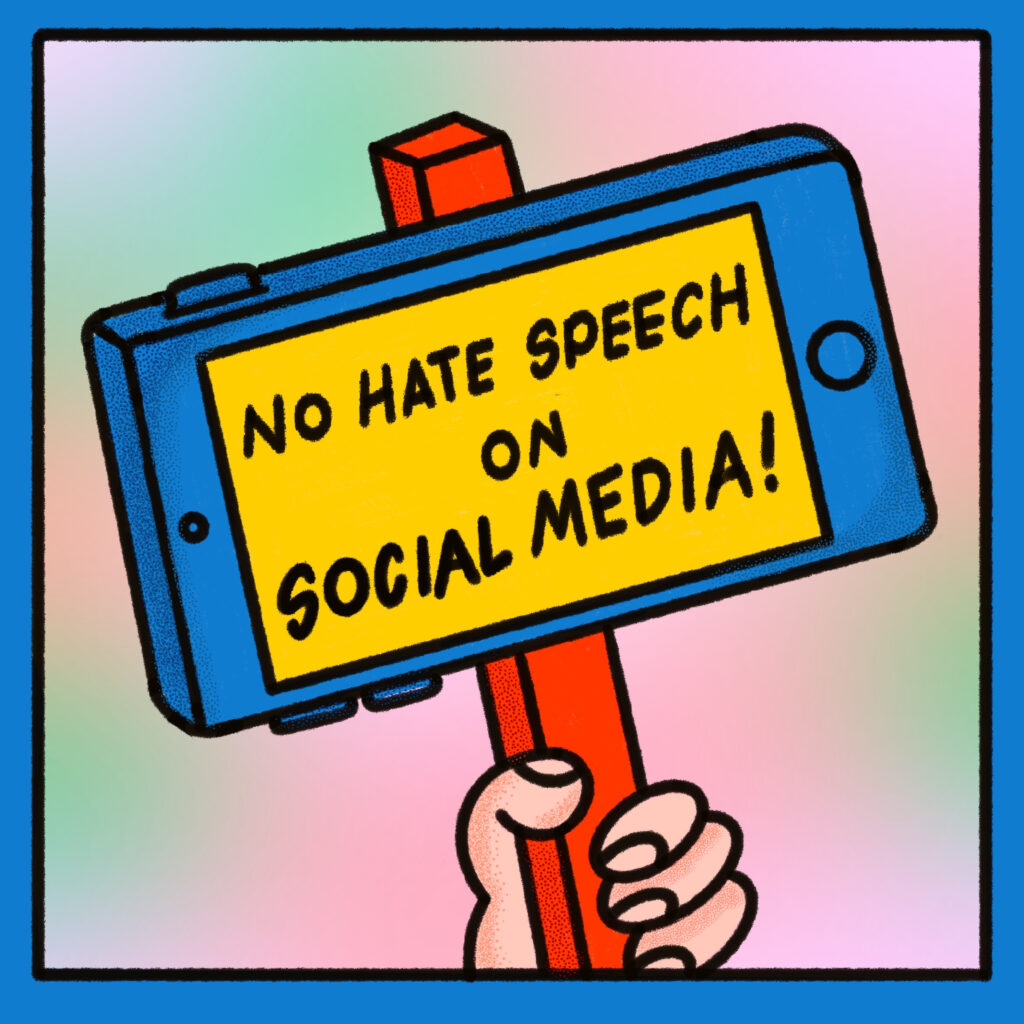Next time you’re on social media, think about whether you could publish what you’re posting in a print magazine or newspaper, or even on a poster in a city center. As social media has grown, so has the discrepancy over how laws apply to it. Legal areas such as copyright, defamation, privacy, and intellectual property all come into play in the realm of social media.
Do social media posts that include links to research papers infringe on intellectual property rights? Can a layperson’s accusatory and reputation-attacking tweet against another person count as defamation? These questions and more are being asked by policymakers to attempt to address the scope, severity, and effects of social media.
Social media outlets each have a set of policies aimed at addressing some of these confusions. Some platforms’ policies have taken center stage recently due to their widespreading effects. Twitter banned President Donald Trump in 2021 due to him allegedly inciting violence in his posts. Facebook received backlash during the pandemic for listing some as pandemic-related posts as misinformation and/or not fact-checked.

These policies all seem reasonable on face-value. It makes sense that dangerous figures or information that could be potentially harmful — or even fatal — to others should be limited on social media. And, since they are private companies, social media platforms have the ability to ensure these protections. However, being private also means that these policies can change arbitrarily, whether due to new leadership or other factors. These companies are not bound to the Constitution as public entities are.
This reality became evident when Elon Musk bought Twitter in late 2022. Musk made multiple changes toTwitter policies upon taking over the company, including charging for account verification, making major company decisions via public polls on the platform, reinstating previously banned individuals, and banning the posting of live locations of others. He claimed that many of these actions were to promote freedom of speech. As a result, Trump and Kyle Rittenhouse — who was acquitted in regards to his alleged invovlement in the Kenosha, Washington shooting — were reinstated on the platform, among others. Many figures lost their verification status, paving the way for misinformation.
These actions raised many questions surrounding the law’s application to social media. Is it against privacy laws — or should it be — to post a livestream video in which an individual is recognizable? What restrictions can and should be put on who can use social media? Can social media be considered a public forum even if it is facilitated by a private company? If so, is it bound to the Constitution, and how do constitutional guarantees manifest on social media?
Disparity between social media policies voids their effectiveness. By having different policies, social media platforms eliminate any chances at achieving the supposed goals of those guidelines: accurate and civil discourse. Instead, they serve as publicity stunts, as people could simply carry out actions on platforms that do not prohibit them.
Social media serves as an outlet for discussion, information sharing, and — importantly — civic discourse. If we want to maintain these benefits of social media, there must be more cohesion, collaboration, and federal guidance surrounding social media policy and its intersection of private and public sects.
The hurdle with addressing these discrepancies, though, is that social media and the internet are developing much faster than our justice and legislative system are. As a result, the weight is put on the private sector to police themselves. The federal government should invest more time and funds into developing stronger and clearer guidelines for social media platforms to limit arbitrariness in their policies. However, a collaborative effort between outlets is also needed if we wish to truly address the new challenges that social media and the internet pose.



